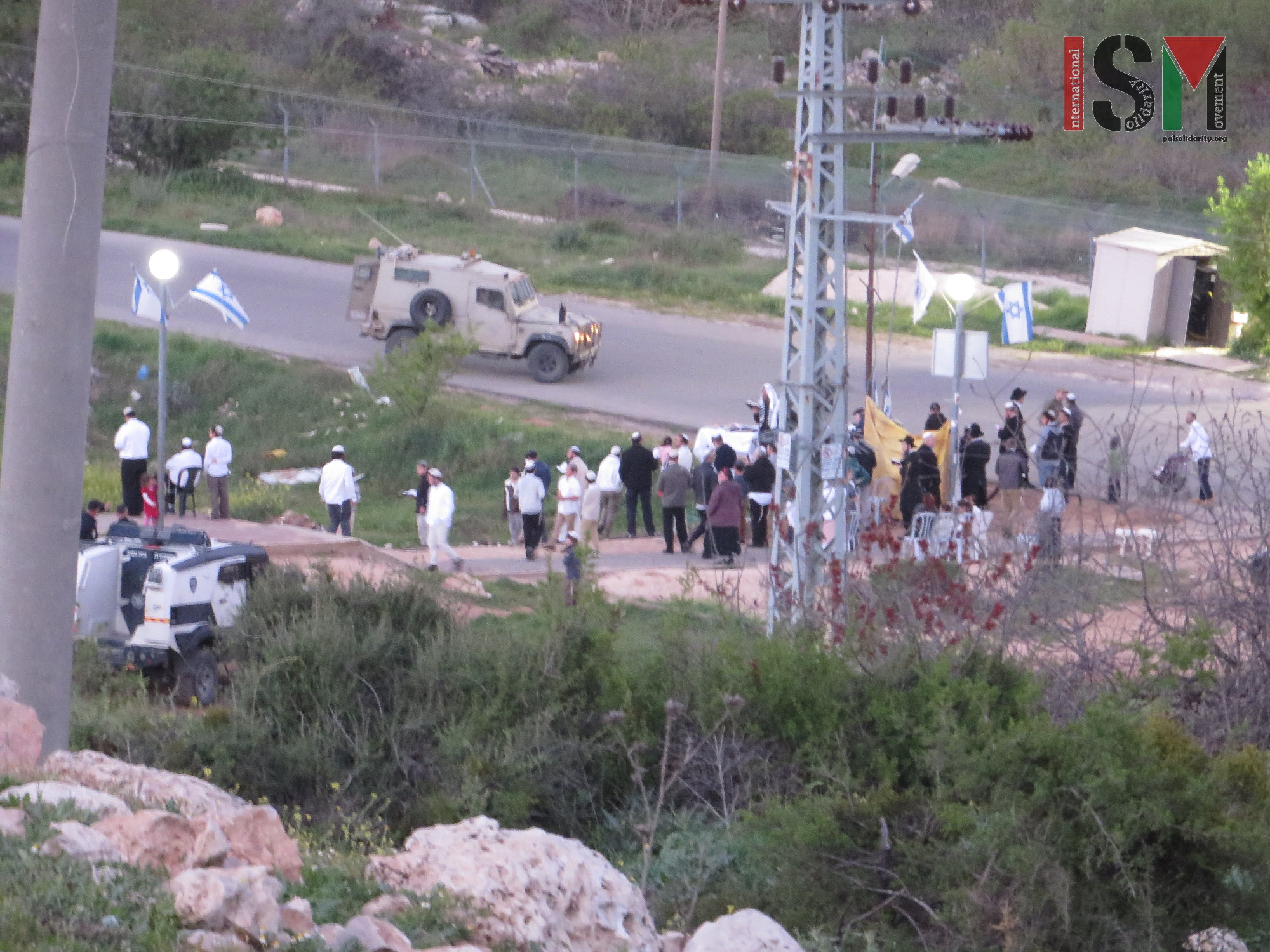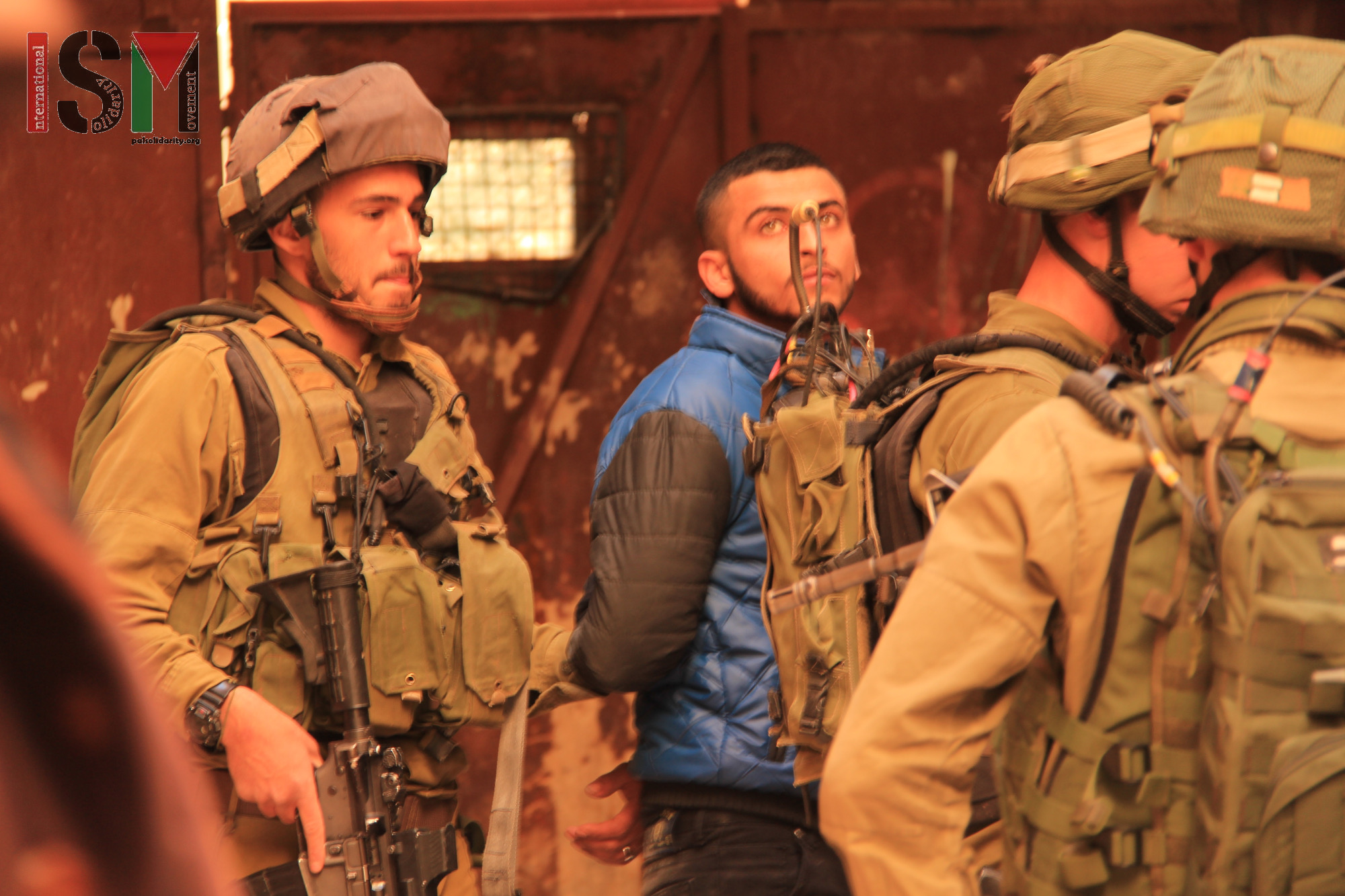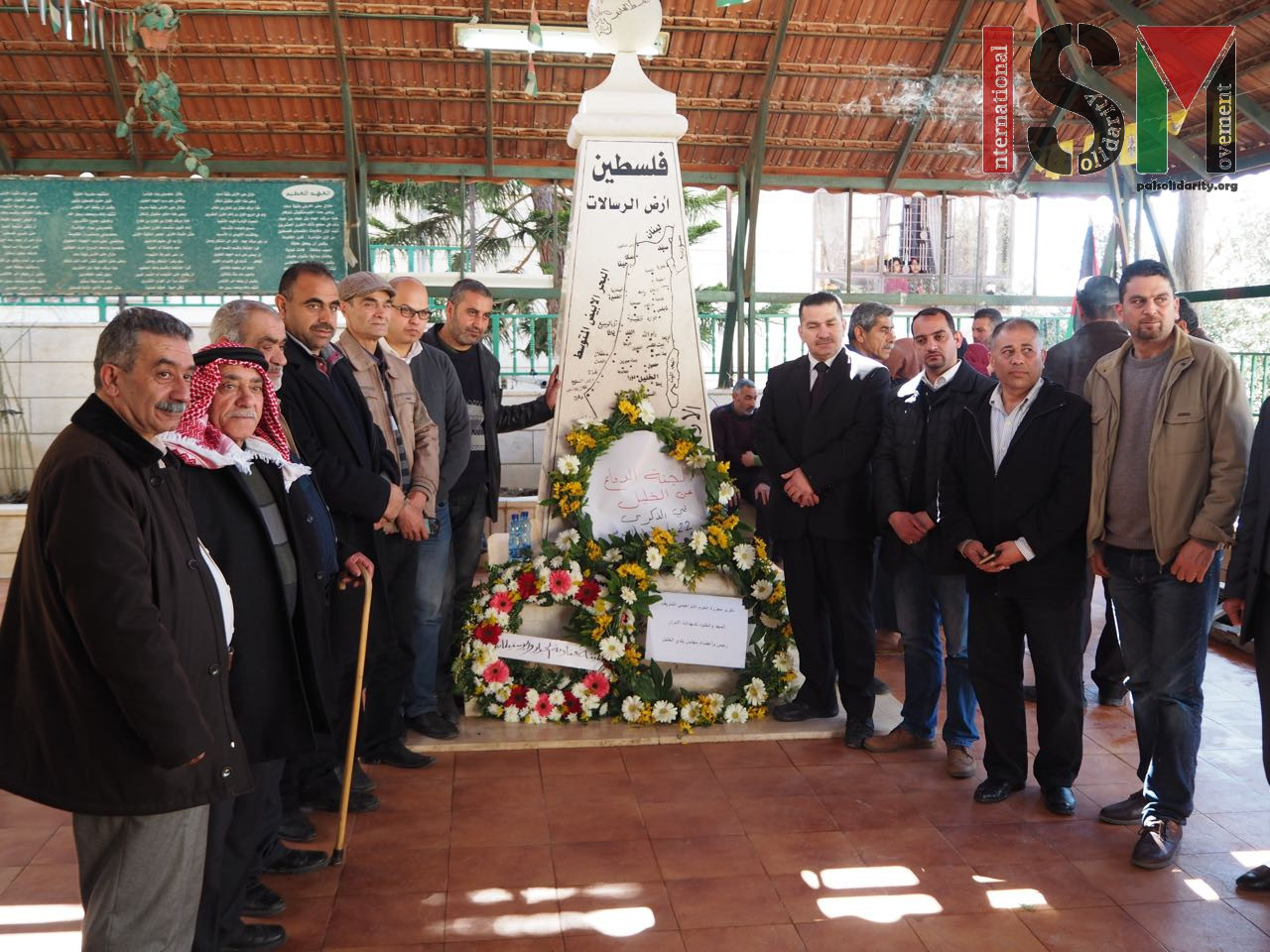Tag: Settler violence
-
Continuous struggle for justice in occupied Hebron
15th March 2016 | International Solidarity Movement, al-Khalil team | Hebron, occupied Palestine On 9th March 2016, Israeli forces yet again demolished the illegally erected synagogue-tent on private Palestinian land close to the illegal Israeli settlement of Kiryat Arba in occupied al-Khalil (Hebron). The synagogue-tent was build up by settlers some years ago opposite the…
-
Israeli forces continue policy of arbitrary and violent arrests in Hebron’s Old City
25th February 2016 | International Solidarity Movement, al-Khalil team | Hebron, occupied Palestine On 25th February 2016, Israeli forces violently arrested two Palestinian men in the souq, the Palestinian market, in occupied al-Khalil (Hebron). Both of them were arbitrarily arrested and finally allowed to leave only after residents intervened. Israeli forces entered a Palestinian house…
-
Wreath-laying in commemoration of Ibrahimi mosque massacre
25th February 2016 | International Solidarity Movement, al-Khalil team | Hebron, occupied Palestine 25 February 2016 marks the 22nd anniversary of the 1994 Ibrahimi Mosque massacre in occupied al-Khalil (Hebron). In commemoration of the Palestinians killed in this massacre, the Hebron Defense Committee (HDC) organised a wreath-laying at the martyrs cemetry. Baruch Goldstein, an Israeli…



